I'm a startup guy that likes to read about history, and spend a lot of time thinking about... well, stuff. This ongoing series is an exploration and tribute to what history can teach us about startups, and life itself.
When you think of the word genius, besides Elon Musk and Albert Einstein, who comes to mind? Most would answer Leonardo Da Vinci. Let's examine how much of his unique, creative teachings can be translated into a modern context.
Future sources, ranging from fact to historical fiction, may include famous generals, philosophers, statesmen, and a whole bunch of Romans.
These posts are long and rich. So enjoy it like a nice bottle of wine. Pour yourself a glass. Don’t just drink to consume. Take a few sips, consider the flavor. Take your time. Nibble on some cheese. Share with a friend. Maybe don’t finish the whole bottle at once. Bookmark this and come back to it later. It ages well.
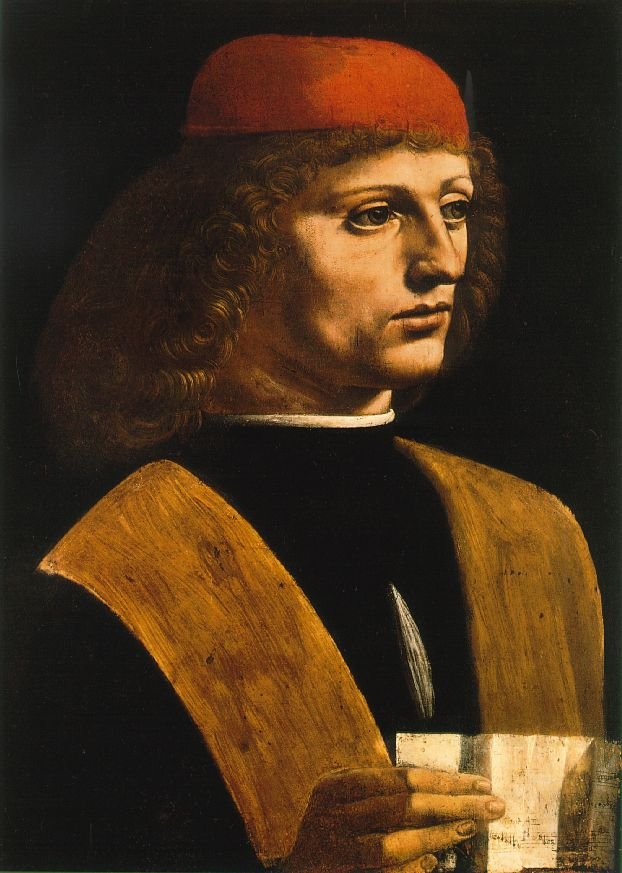
Possible self-portrait, named The Musician, painted by Leonardo Da Vinci.
Leonardo Da Vinci
Besides his famed creative genius, Leonardo could certainly contend for most-interesting-man to ever live. He lived during one of the golden ages of history, during the renaissance, and he was right there in the heart of the movement, in Florence. Leonardo was the illegitimate son of a rich bureaucrat, but became a local celebrity through his amazing works and powerful benefactors that included princes and kings. Their support enabled his unbounded mind to wander from peeling the lips off human cadavers to inventing new weapons of war, and the mechanics of the woodpecker's tongue.
As an example of the confidence of a young Leonardo, here is item #11 of his resume, sent to a would be benefactor:
"Likewise in painting, I can do everything possible."
This was a different kind of mind, that struggled with formal education incl. latin and mathematics, always somewhat distracted from the present by the future, but relentlessly exploring the limits of his own knowledge and ability. The original renaissance man, Leonardo died in old age, under protection of the king of France, his final and closest benefactor, with unfinished Mona Lisa next to his bed, after a mere 20 years of work on that single painting. Perfectionist doesn't even begin to describe Leonardo.
Luckily for us, most of Leonardo's notebooks survive to this day. Fittingly, the writer famous for the biography of a genius of our time, Steve Jobs, has also published a thorough examination of the life of Leonardo Da Vinci.
So, kick back in your chair, get a nice cup of tea, and let's get some of that sage advice from yonder.
"Speculators on perpetual motion, how many vain chimeras you have created in this quest!"
...on the thin line between innovation versus speculation.
High self-confidence and a thick skin are mandatory for all founders, but when does it go too far? How many no's is enough to go from ambitious and visionary to... well, cray-cray. One useful tool is seeking user feedback over investor feedback. The latter might never be necessary to win over, but at SOME point you will need users and customers. So go to them early to seek validation, and let the investors no-bullets bounce off your armor.
"There is no certainty in sciences where mathematics cannot be applied."
...on what is real and what is make-believe.
The word "scientific" has a fairly loose definition, as we know famously even statistics can be made into a tool for your truth, rather than the absolute truth. Are there any absolute truths to be found? Is there a universal bullshit-filter out there? The closest thing might be first-principles, as-in building your narrative from an objectively verifiable fact, as opposed to assumptions that you or others have made. Usually something mathematic or physical in nature, rather than philosophical or religious. Once you start thinking about it, almost nothing you hear is based on first-principles, which is scary. There is another genius of our generation that strictly operates on first-principles: Elon Musk.
"If you wish to have a sound knowledge of the forms of objects, begin with the details of them, and do not go on to the second step until you have the first well fixed in memory."
...on solid foundations for lofty towers.
Without making this post into another bromantic tirade about Elon, his perspective on building knowledge applies universally. Think of knowledge like a tree. You can't really understand the edge, the leaves, until you go through the motions of understanding the core, the trunk. You go from roots to trunk to branches to leaves. There is no other way, if you really want to understand something. I'm sure your imagination can see how this applies to many aspects of your business, and the countless shortcuts you've already taken. It's never too late to backtrack to the roots, and set it up for stable future growth.
"Of the horse I will say nothing because I know the times are bad."
...on being right vs. being righteous.
Leonardo spent a few years working on what would've been the largest bronze statue of a horse in the world. Other artists considered it impossible, as techniques to cast such large sculptures didn't yet exist. Leonardo had no experience in bronze work, but promptly proceeded to invent the necessary tools and processes to do it. Classic Leo, really. Unfortunately, the project was cut short by a war and all the materials lost. This stung badly, as Leonardo was a bit of a showman and had surely planned to show the world how awesome he was. Yet he knew in times of war, one doesn't complain about petty things like finishing artwork.
We all have those moments, but you have to choose when to spend your "political capital" with cofounders, partners, clients, and investors. Suffer your grievances in silence, and don't become insufferable.
"Though human ingenuity may make various inventions, it will never devise an invention more beautiful, more simple, more direct than does Nature, because in her inventions nothing is lacking and nothing is superfluous."
...on the power of natural selection.
When possible, do not go out of your way to go against the order of what is natural. The new partnership you're negotiating doesn't feel right? Perhaps it's unnatural. The new hire that has all the skills but your gut says no? Trust in your instinct, it was honed over millions of years of evolution for a reason. Only that which is natural will last. It works for nature, at least.
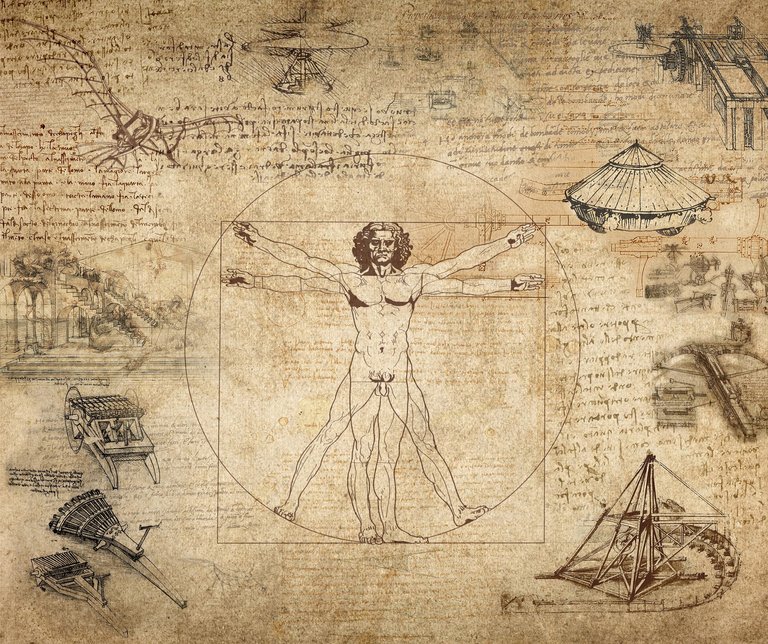
The iconic Vitruvian Man is just one of 10 ideas Leonardo has captured on this single sheet of his notebook. Paper was expensive, so Leonardo was efficient with the material, but unable to limit his flow of ideas.
"Let no one who is not a mathematician read my work."
...on embracing your inner geek.
Great things never come from being accepted or loved by all.
"Alexander and Aristotle were teachers of one another."
...on mentorship.
In today's world, mentorship rarely works like the textbook example. Leonardo notes how the young prince of Macedonia equally mentored the greatest teacher of the time. One can learn equally through teaching.
"As a well spent day brings a happy sleep, so a well employed life brings a happy death."
...on the force of regret.
Leonardo didn't exactly lead a conventional life. Artist. Engineer. Inventor. He had many careers, often at once. His final notes and unfinished works were started the day of his death at old age. He didn't become a notary like his father. The definition of "well employed" can take many shapes, but the critical choice you need to make is to define it on your own terms.
“Seeing that I can find no subject specially useful or pleasing — since the men who have come before me have taken for their own every useful or necessary theme — I must do like one who, being poor, comes last to the fair, and can find no other way of providing himself than by taking all the things already seen by other buyers, and not taken but refused by reason of their lesser value.”
...on finding opportunity in the crowd.
Like the intellectual marketplace of Leonardo's mind, perhaps you feel that all good ideas have already been done. A better way to approach this issue is what idea are you suited to work on. What does that mean? It means what idea are you willing to commit years of time and attention, and not give up out of boredom? Passion is good, obsession is better. It's unlikely that there are many others who a) have the same idea b) are passionate about it c) getting past a and b to actually do something about it.
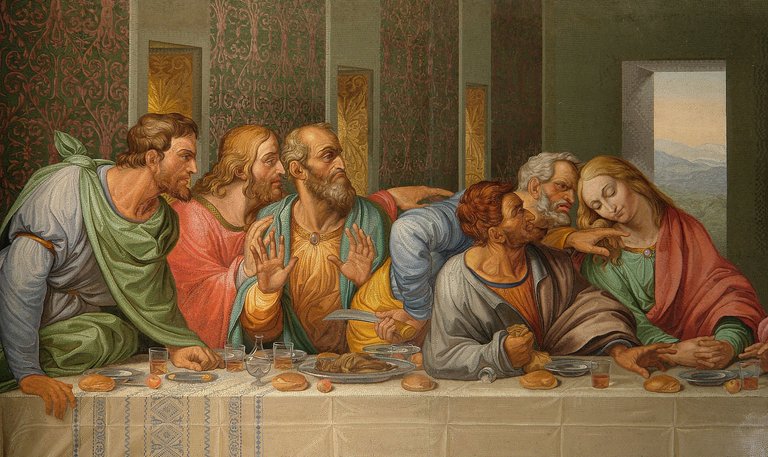
The other famous Leonardo painting is Milan's pride, The Last Supper. Besides the evocative scene, it was a masterpiece in perspective, as seen in the distances between the lively characters and the doorways fading towards the window.
“I am fully conscious that, not being a literary man, certain presumptuous persons will think that they may reasonably blame me; alleging that I am not a man of letters. Foolish folks!”
...on qualifications.
Previous readers may note that I'm not a huge fan of fancy degrees, mostly because I got one myself and spent almost 7 years doing it. Luckily there is no school of entrepreneurship, or certification board you need to start a business. In many industries that are currently being disrupted, the best companies were started by outsiders. No qualifications can be made into a huge advantage, you aren't limited in your thinking by industry practice and tradition!
“Those who are in love with practice without knowledge are like the sailor who gets into a ship without rudder or compass and who never can be certain whether he is going.”
...on moving fast and breaking things.
The famed Facebook motto inspired a generation of hackers to do big things. Yet as we know, Facebook has moved on and introduced hacker curse words like "stability". Yuck. Yet even in the early stages of a new venture you must consider what are your foundations. It's better to hack features, than hack new platforms every week. Otherwise you will end up with tons of amazing and somewhat random stuff, that has no backbone, process, or scalability to grow on.
“The youth should first learn perspective, then the proportions of objects. Then he may copy from some good master, to accustom himself to fine forms. Then from nature, to confirm by practice the rules he has learnt. Then see for a time the works of various masters. Then get the habit of putting his art into practice and work.”
...on proper order of doing things right.
Forms are everywhere in the world. Some are arbitrary and enforced by tradition, others by simple common sense. To do something epic, you must learn the basics. Copy from others to bootstrap yourself. Learn from others first. Only then can you go beyond and innovate. Learn the rules, then break them.
“The painter who is familiar with the nature of the sinews, muscles, and tendons, will know very well, in giving movement to a limb, how many and which sinews cause it; and which muscle, by swelling, causes the contraction of that sinew; and which sinews, expanded into the thinnest cartilage, surround and support the said muscle.”
...on craftsmanship.
Are you just drawing muscles from memorized patterns, or applying your knowledge of their workings to render a reality? Do you care about the result, or does the process matter more? These are cultural decisions determined by the founding team and early employees. Remember that results will inevitably vary, but process you can control. That which you control is your own.
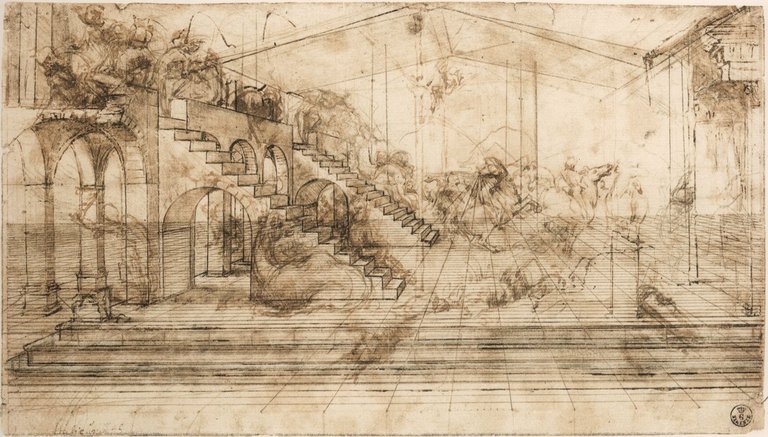
This sketch for The Adoration of The Magi shows the meticulous preparation by Leonardo in setting consistent perspective across the entire scene. This shows us an amazing connection between the beauty of art and the precision of science.
“To the end that well-being of the body may not injure that of the mind, the painter or draughtsman must remain solitary, and particularly when intent on those studies and reflections which will constantly rise up before his eye, giving materials to be well stored in the memory.”
...on focus.
If you have a solitary goal to achieve, immerse yourself. You want the materials of your work to be well stored in the memory. Innovation is easier when you have a singular focus. This applies to your team, too. Do not hire temps and gig workers if you want to create something new and amazing. Do not outsource if you want awesomeness. With commitment comes reflection. With reflection comes the aha moments.
“I myself have proved it to be of no small use, when in bed in the dark, to recall in fancy the external details of forms previously studied, or other noteworthy things conceived by subtle speculation; and this is certainly an admirable exercise, and useful for impressing things on the memory.”
...on focus again.
If you do many things, your mind will wander across many things when idle. If you do just one thing very intently, your mind will explore this singular topic at rest and leisure. Mediocre ideas come from white boards and conference calls. Great ideas come from the gym, the park, the couch, and the bed.
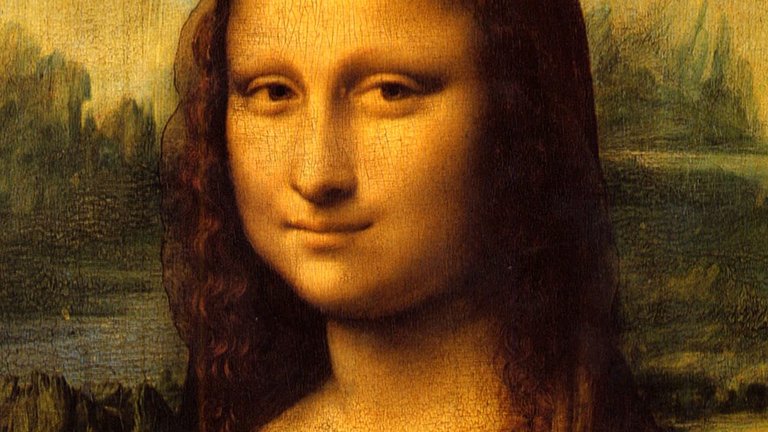
Leonardo's most famous creation, The Mona Lisa, was by his bedside upon his death, still unfinished after 20 years of minute additions and tweaks of thousands of individual paint strokes.
“He is a poor disciple who does not excel his master.”
...on hiring for growth.
Never hire for a role, if you can afford to make that choice. Hire for growth. Assume people will rise to the occasion, and any future occasions that will... occur. Hire the best people that you come across, not the people you desperately need. Circumstances will change, and the best people will always outperform on the long-term.
“I cannot forbear to mention among these precepts a new device for study which, although it may seem but trivial and almost ludicrous, is nevertheless extremely useful in arousing the mind to various inventions. And this is, when you look at a wall spotted with stains, or with a mixture of stones, if you have to devise some scene, you may discover a resemblance to various landscapes, beautified with mountains, rivers, rocks, trees, plains, wide valleys and hills in varied arrangement; or again you may see battles and figures in action; or strange faces and costumes, and an endless variety of objects, which you could reduce to complete and well drawn forms. And these appear on such walls confusedly, like the sound of bells in whose jangle you may find any name or word you choose to imagine.”
...on leaving room for imagination.
Don't always hurry towards the obvious solution. Obvious solutions will never get you ahead, because if they're obvious to your, they're obvious to others. Seek the path less traveled, when you can. Good things come to those who wait. Stare at walls to discover your new platform architecture. Listen to bells to invent your new product name. If all else fails, start a daily meditation practice. Give your mind room to explore the nooks and crannies of your imagination.
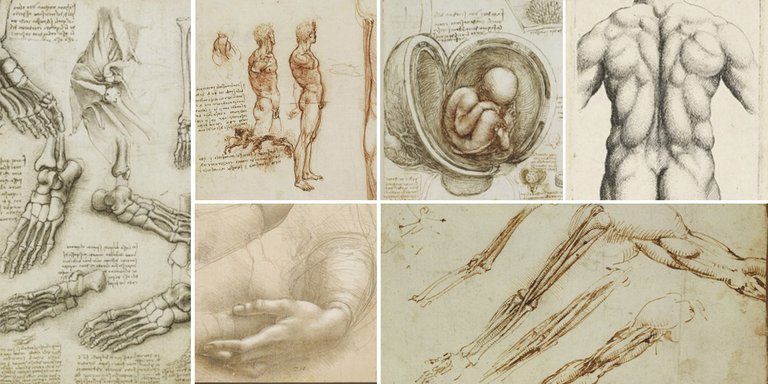
Leonardo spent years studying cadavers in the mortuary to learn about the body. There were no textbooks on human anatomy at the time, so Leonardo may have well been the foremost expert in the world on this topic, among many others.
“What is fair in men, passes away, but not so in art.”
...on fads and trends.
When is it wise to jump on bandwagons? Should you dedicate your career to crypto, because the media is hyping it up? The trick is to recognize staying power. If you absolutely believe crypto will always be here in some form, then yes, it's probably a good career focus. It may not pay off short-term, and you may have regrets along the way, but being a pioneer and living through failures becomes valuable in itself over time. Assuming you don't jump onto the next bandwagon, of course!
“He Who Despises Painting Loves Neither Philosophy nor Nature.”
...on recognizing greatness outside your domain.
This is a personal observation, but people with a singular focus in life are rarely creative. I'm not talking about dedication. You could be a great artist, athlete, or businessman. But if you only care about one thing, and refuse to take inspiration or influence from other fields, you are limiting your creativity. Most great works of art, literature, or even science have sources from other walks of life. Einstein famously claimed to have found intuition for the theory of relativity through his violin music.
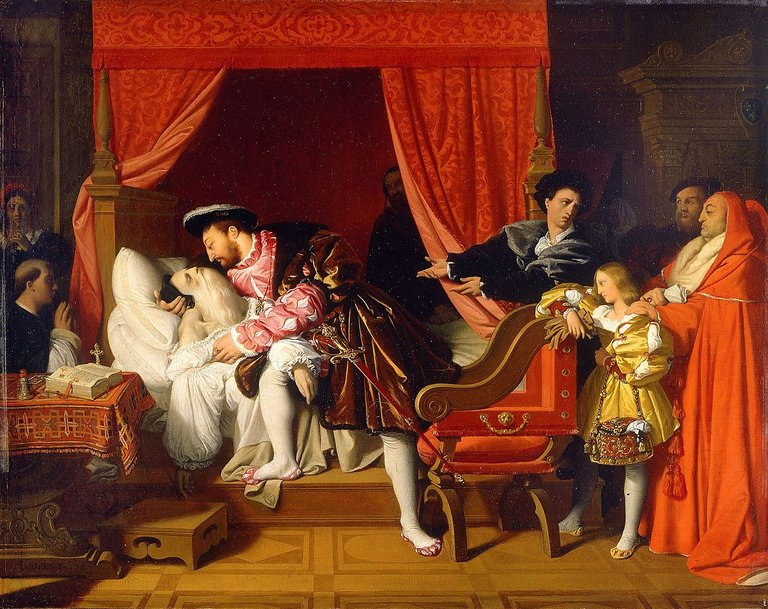
Leonardo being held at his death bed by his beloved patron, the king of France.
"The soup is getting cold"
Final notebook entry, morning of his death, 1519.
Leonardo Da Vinci
1452 – 1519
Read the books
- Leonardo da Vinci by Walter Isaacson
- Notebooks by Leonardo Da Vinci
Previous episodes you can check out
- Marcus Aurelius, philosopher Emperor of Rome
- Seneca, famous Stoic philosopher
- Musashi, legendary Japanese Samurai
- Napoleon, ambitious Corsican artillery sergeant
Much more to come…
Be sure to scroll to the top to follow me if you’d like to receive a notification when the next episode is added.
Thanks for reading,
Aki
Is there a favorite quote here? Any other historical figure I should cover? Please share so we can benefit, too.
Congratulations @dullboy! You have completed some achievement on Steemit and have been rewarded with new badge(s) :
Click on the badge to view your Board of Honor.
If you no longer want to receive notifications, reply to this comment with the word
STOPTo support your work, I also upvoted your post!
Do not miss the last post from @steemitboard!
Participate in the SteemitBoard World Cup Contest!
Collect World Cup badges and win free SBD
Support the Gold Sponsors of the contest: @good-karma and @lukestokes